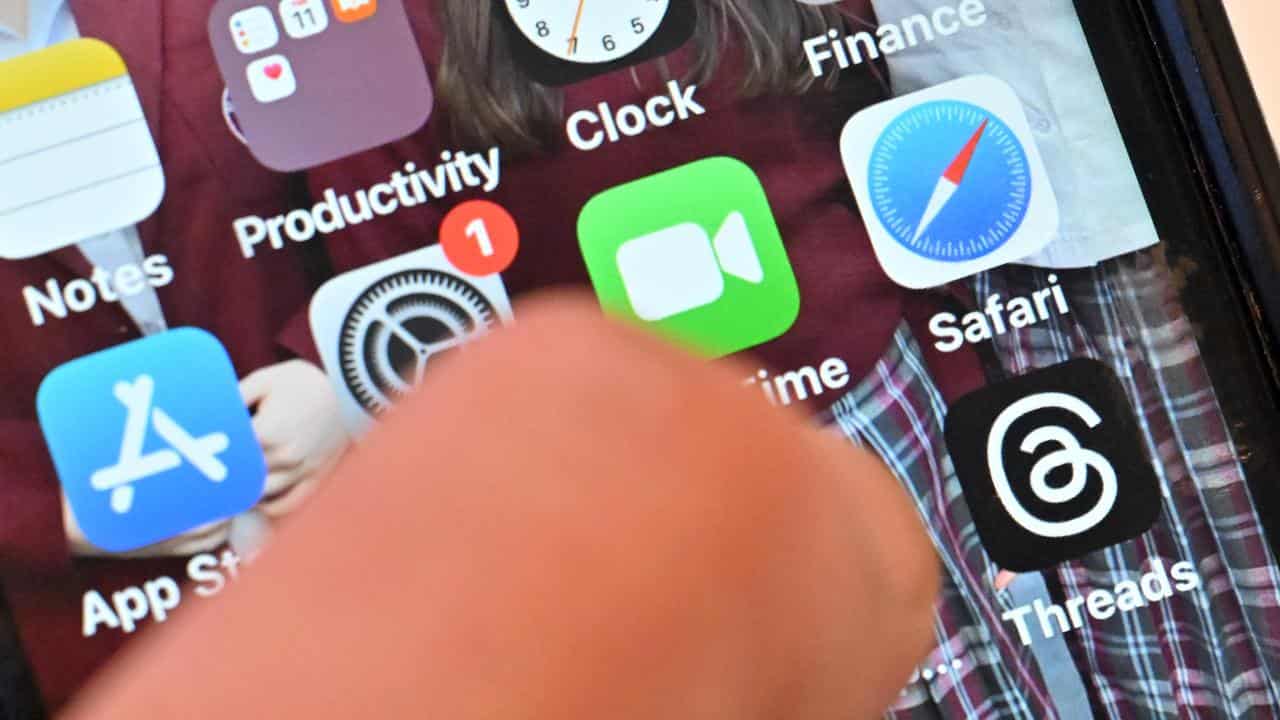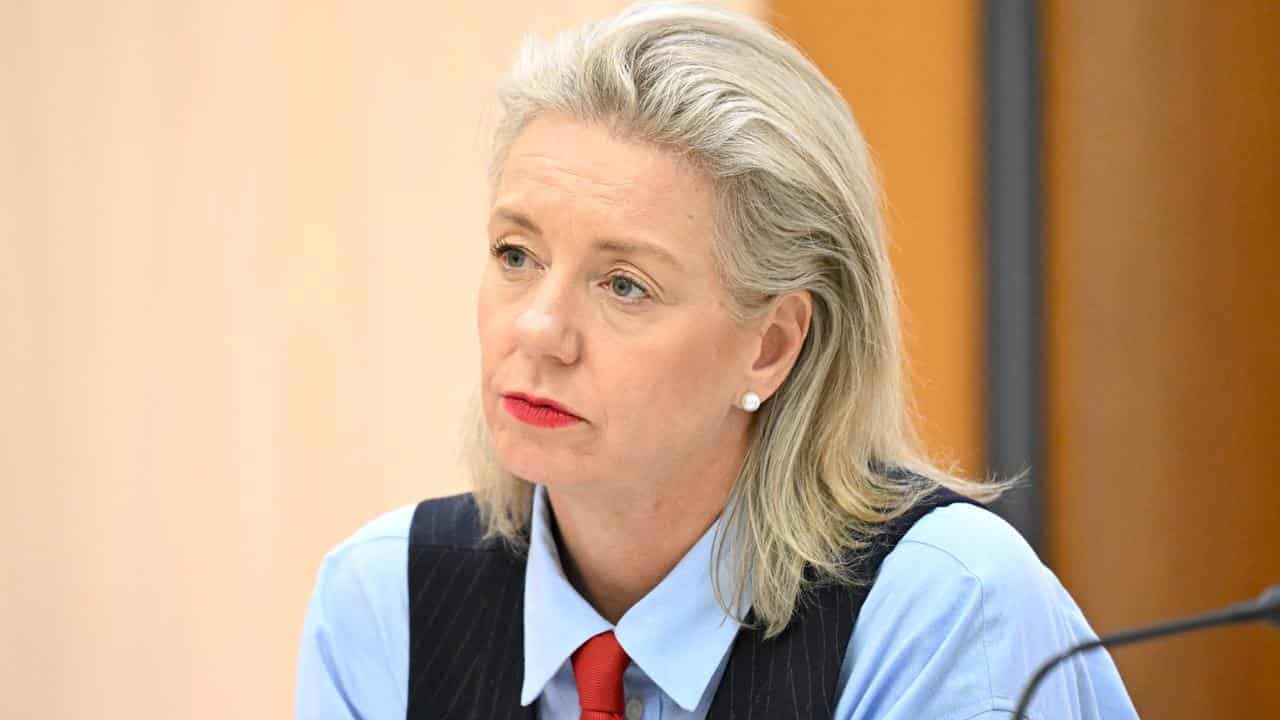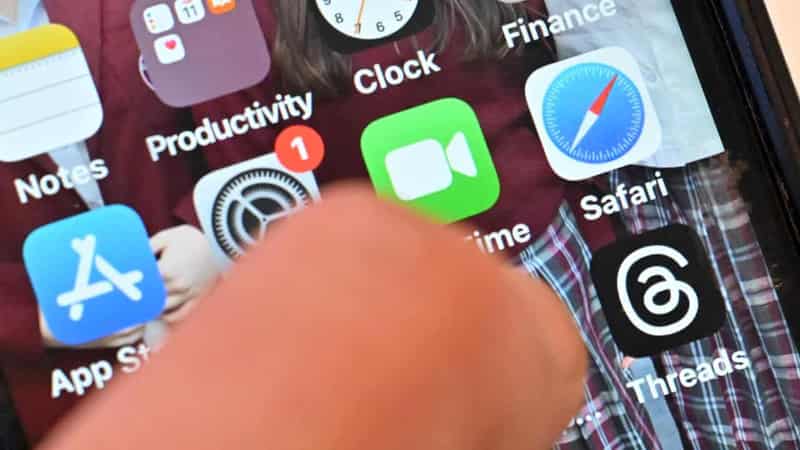
Facebook and Instagram parent Meta has warned it will have to collect personal data from all Australians as part of a proposed social media age limit that has drawn the ire of internet privacy advocates.
Australians younger than 16 will be banned from social media platforms including Facebook, Instagram, Snapchat, Reddit and X (formerly Twitter) under world-first legislation introduced by the Albanese government.
Meta committed to respecting any age limits imposed by the government but said it was concerned the legislation was being rushed without adequate consultation or evidence.
"The legislation as drafted seems out of step with available research and expert opinions," a Meta spokesperson said.
"The government’s approach will likely require each app provider to collect personal identification or biometric data from all Australians in order to prevent under 16s from accessing their services, an inefficient and burdensome process for everyone."
How the age limit will be enforced is up to the social media platforms, but they have raised concerns about the efficacy of technology that does not unduly encroach on privacy.
Tech giants and human rights groups have also come out against a blanket social media ban saying the focus should be on creating a safe online experience, not stripping access to some of the positive benefits.
Tech billionaire and X owner Elon Musk slammed the legislation, saying it "seems like a backdoor way to control access to the internet by all Australians".
"Unfortunately, it's one of those rare times where we find ourselves agreeing with Elon Musk," Digital Rights Watch campaigns and advocacy manager Kathryn Gledhill-Tucker said.
Regardless of what form of age assurance platforms use, there will be an invasion of privacy, Ms Gledhill-Tucker told AAP.
That would exposes users to security risks because platforms will have to collect additional information that can be stolen by third parties,
While acknowledging concerns about the negative impact of social media on children, free speech and anti-censorship advocate Michael Shellenberger said a mandatory age limit was "a Trojan horse to create digital IDs".
The federal government has ruled out mandatory digital IDs and the coalition has drawn a red line over their implementation.
There will be carve-outs for platforms focussing on health and education, which are likely to include Messenger Kids, WhatsApp, Kids Helpline, Google Classroom and YouTube, Communications Minister Michelle Rowland said.
Meta said the ban should be applied consistently across all apps used by young people, including YouTube and online gaming.
It could come into effect as early as the end of 2025 due to a minimum 12-month lead time once it passes parliament - which it's set to do imminently with Labor and coalition support - but the opposition wants this reduced.
"We cannot act quickly enough because there is a tsunami of mental health issues occurring right now," Nationals senator Bridget McKenzie told reporters in Canberra on Friday.

She ruled out the implementation of a digital ID to verify a person's age, with the onus set to be on social media platforms to enforce the ban rather than the federal government mandating a particular technology.
Her Nationals Senate colleague Matt Canavan cast doubt on the ban, saying in a post on X he was not sure an age verification system could work.
Companies that breach the minimum age obligation will face fines of up to $49.5 million.
The legislation will go under the microscope during a single-day parliamentary hearing on Monday after a 24-hour window for submissions, which some have slammed as too short to adequately assess the impact and potential unintended consequences.
"This is definitely the shortest window that I've ever seen for a piece of legislation," Ms Gledhill-Tucker said.
"This is clearly just policy theatre.
"This is not a meaningful democratic process at all."









